| Coach | NA |
| Venue | Estadio de La Independencia |
Chico Trivia
Chico predictions
Predictions for Chico: See upcoming and historic predictions for Chico below.
Disclaimer: Past performance does not guarantee future results. Betting involves risk; only wager what you can afford to lose. Always gamble responsibly.
Chico Opinions
 Who is the greatest player in Chico's history?
Who is the greatest player in Chico's history?
Chico latest results
| 14/04 | - | ||
| 12/04 | - | ||
| 07/04 | - | ||
| 30/03 | 1 - 0 | ||
| 24/03 | 3 - 2 |
Primera A standings
| Rank | Team | MP | W | D | L | GF | GA | GD | Pts |
|---|---|---|---|---|---|---|---|---|---|
| 1 |
 Alianza Petrolera
Alianza Petrolera
|
0 | 0 | 0 | 0 | 0 | 0 | 0 | 0 |
| 2 |
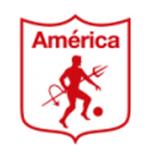 America de Cali
America de Cali
|
0 | 0 | 0 | 0 | 0 | 0 | 0 | 0 |
| 3 |
 Bucaramanga
Bucaramanga
|
0 | 0 | 0 | 0 | 0 | 0 | 0 | 0 |
| 4 |
 Atletico Nacional
Atletico Nacional
|
0 | 0 | 0 | 0 | 0 | 0 | 0 | 0 |
| 5 |
 Chico
Chico
|
0 | 0 | 0 | 0 | 0 | 0 | 0 | 0 |
| 6 |
 Deportes Tolima
Deportes Tolima
|
0 | 0 | 0 | 0 | 0 | 0 | 0 | 0 |
| 7 |
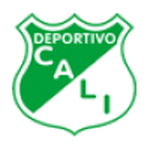 Deportivo Cali
Deportivo Cali
|
0 | 0 | 0 | 0 | 0 | 0 | 0 | 0 |
| 8 |
 Deportivo Pasto
Deportivo Pasto
|
0 | 0 | 0 | 0 | 0 | 0 | 0 | 0 |
| 9 |
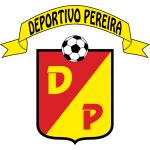 Deportivo Pereira
Deportivo Pereira
|
0 | 0 | 0 | 0 | 0 | 0 | 0 | 0 |
| 10 |
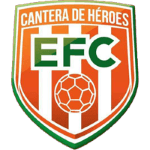 Envigado
Envigado
|
0 | 0 | 0 | 0 | 0 | 0 | 0 | 0 |
| 11 |
 Fortaleza FC
Fortaleza FC
|
0 | 0 | 0 | 0 | 0 | 0 | 0 | 0 |
| 12 |
 Independiente Medellin
Independiente Medellin
|
0 | 0 | 0 | 0 | 0 | 0 | 0 | 0 |
| 13 |
 Santa Fe
Santa Fe
|
0 | 0 | 0 | 0 | 0 | 0 | 0 | 0 |
| 14 |
 Jaguares
Jaguares
|
0 | 0 | 0 | 0 | 0 | 0 | 0 | 0 |
| 15 |
 Junior
Junior
|
0 | 0 | 0 | 0 | 0 | 0 | 0 | 0 |
| 16 |
 La Equidad
La Equidad
|
0 | 0 | 0 | 0 | 0 | 0 | 0 | 0 |
| 17 |
 Millonarios
Millonarios
|
0 | 0 | 0 | 0 | 0 | 0 | 0 | 0 |
| 18 |
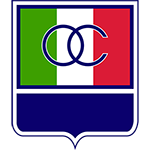 Once Caldas
Once Caldas
|
0 | 0 | 0 | 0 | 0 | 0 | 0 | 0 |
| 19 |
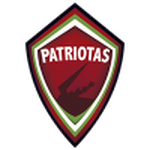 Patriotas
Patriotas
|
0 | 0 | 0 | 0 | 0 | 0 | 0 | 0 |
| 20 |
 Rionegro Aguilas
Rionegro Aguilas
|
0 | 0 | 0 | 0 | 0 | 0 | 0 | 0 |
About Chico
Club Deportivo Boyacá Chicó Fútbol Club, commonly known as Boyacá Chicó or simply Chicó, is a professional Colombian football club based in Tunja, the capital city of the Boyacá Department. The club was founded on March 26, 2002, by Eduardo Pimentel, a former footballer and football executive. Despite its relatively short history, Chicó has managed to establish itself as a prominent force in Colombian football.
Chicó's journey to the top tier of Colombian football was swift. The club was promoted to the Categoría Primera A, the top division of Colombian football, in 2004, just two years after its founding. This rapid ascent was a testament to the club's strong management and talented squad.
In 2008, Chicó achieved its most significant accomplishment to date by winning the Categoría Primera A title. This victory marked the club's first national championship and solidified its status as one of Colombia's top football teams. The club's success did not stop there. In 2009, Chicó made its debut in the Copa Libertadores, the most prestigious club competition in South American football, reaching the quarterfinals.
Chicó's home matches are played at the Estadio de La Independencia, a stadium with a capacity of over 20,000 spectators. The club's fans, known as "Los Ajedrezados" (The Chessmen), are renowned for their passionate support. The team's colors are red and white, and their emblem, a chess knight, symbolizes strategy and intelligence, key attributes in both chess and football.
Over the years, Chicó has developed a reputation for nurturing young talent. The club's youth academy has produced several players who have gone on to represent the Colombian national team and play in Europe's top leagues. This commitment to youth development is a cornerstone of the club's philosophy and has played a significant role in its success.
Despite facing financial difficulties and relegation battles in recent years, Chicó has remained resilient. The club's ability to overcome adversity is a testament to its strong character and unwavering determination. Today, Chicó continues to compete in the Categoría Primera B, the second tier of Colombian football, with the aim of returning to the top flight.
In conclusion, Boyacá Chicó Fútbol Club, despite its relatively short history, has left an indelible mark on Colombian football. From its rapid ascent to the top tier to its national championship victory and Copa Libertadores debut, Chicó has proven that it can compete with the best. With its commitment to youth development and its resilient spirit, the club looks set to continue its exciting journey in Colombian football.















